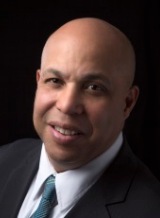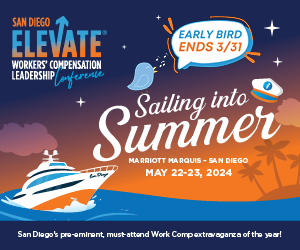Industry Insights
March 11, 2019
Duff: The Odd Lot Doctrine and Work Search
- National
- - 0 shares
A common problem in workers’ compensation is the partially incapacitated worker who is unable to return to the “injury employment” as a result of an unambiguously work-related injury.

Michael C. Duff
For some period of time, the worker may be deemed by all parties to be uncontroversially entitled to temporary total benefits. After some passage of time, however, payment of (frequently voluntarily provided) total benefits may be controverted, often when maximum medical improvement is established.
The existence of a substantial, work-related, permanent partial disability may be evident. But the worker is usually required to provide some evidence of the inability to find work within work-caused medical limitations to remain eligible for total benefits.
To quote the Larson’s treatise formulations, “If the evidence of degree of obvious physical impairment, coupled with other facts such as claimant’s mental capacity, training, or age places claimant prima facie in the odd lot category, the burden should be on the employer to show that some kind of suitable work is regularly and continuously available to the claimant.”
If, on the other hand, “the claimant’s medical impairment is so limited or specialized in nature that he or she is not obviously unemployable or relegated to the odd lot category, it is not unreasonable to place the burden of proof on that claimant to establish unavailability of work to a person in his or her circumstances. This ordinarily would require a showing that the claimant has made reasonable efforts to secure suitable employment.”
Unfortunately, regardless the number of times the word “obvious” is invoked as a modifier, the issue is often not obvious at all: When is an impairment “obvious” and how many “other facts” must be established to place the employee prima facie in odd lot status? When is a worker “not obviously unemployable”?
The distinctions are of consequence and not mere verbal antics. To the extent a dispute erupts over the adequacy of a claimant’s work search, one party or the other may effectively be placed in the position of attempting to prove a negative: Why is the worker not obtaining work?
In my workers’ compensation textbook, I juxtapose two work search cases: one from Wyoming, Moss, and one from Maine, Avramovic. Wyoming formally recognizes the odd lot doctrine. Maine apparently does not: Its statute allows for “100% partial” benefits, and Maine courts appear not to have used the phrase “odd lot” for decades (similar ends seem to be achieved through payment of “100% partial” benefits).
The paradox I pose for students is whether claimants are better off with or without a rigid rule on “odd lot.” In the Wyoming case, decided under a facially strong odd lot rule, the worker performed what I consider an excellent work search, had strong medical evidence in his favor, received the litigation benefit of a state high court “calling out” its own administrative fact-finder as blatantly unfair, and nevertheless lost the case.
In the Maine case, the state high court reversed a hearing officer’s finding that a work search was inadequate because the official did not tightly conform to a nine-factor work search test. Perhaps when the stakes are higher (an odd lot permanent award versus a presumably more reviewable partial award), the prospects for claimant litigation success diminish.
Under the Longshore and Harbor Workers’ Act, the rule seems to be that a partially incapacitated employee unable to perform his “usual employment” is prima facie totally disabled. The claimant having satisfied his initial burden, the employer must show that “there exists a reasonable likelihood, given the claimant’s age, education and background that he would be hired if he diligently sought the job.”
Importantly, “the employer must show the precise nature, terms and availability of the jobs.” If the employer satisfies that burden, the employee can still prevail by showing that he diligently tried and was unable to secure such employment. Obviously, federal systems (typically liberal construction) are different from state systems, and this burden-shifting mechanism quite evidently privileges full benefit coverage.
Given the variability of work search systems, it is difficult to explain to students the essence of work search and the odd lot doctrine. Is work search a mitigation doctrine? Is it an attempt to determine whether an employee has voluntarily withdrawn from the workplace?
Seen through the eyes of an angry worker (I feel both under compunction and emboldened to speak of such things because I spent 15 years as a blue collar worker before attending law school, 1977-1992), it is hard to explain why, after having been ripped involuntarily from remunerative employment, he or she must jump through hoops to qualify for the princely sum (if lucky) of around the state average weekly wage.
As I tell my students, you do not have to agree with this “angry injured worker” perspective, but you do have to understand it in order to be an effective advocate on any side of a workers’ compensation dispute.
Michael C. Duff is associate dean for student programs and external relations, and is professor of law, at the University of Wyoming College of Law. This entry is republished from the Workers' Compensation Law Professors blog, with permission.
Advertisements
Columns
- Montgomery: Sedgwick Tries PPO Discount for Med-Legal (Again) 04/19/24
- Kamin: More Policy Exclusions Would Reduce Losses 04/18/24
- Phillips: It's All Settled 04/17/24
- Snyder: Public Benefit Rules Have Changed, but It Might Not Make a Difference 04/12/24
- Headrick: Clearing Up a Common Misconception 04/11/24
- Snyder: Litigation Guidelines Should Define Four Settlement Triggers 04/10/24
- Kirsch: Depositions of Comp Carrier Employees After Intervening in Third-Party Actions 04/09/24
- Wilson and Bennett: Could AI Have Prevented the Opioid Crisis in Workers' Comp? 04/08/24
- Moore: Pandemic Effect Over in March 2027. Really? 04/05/24
- Geaney: A Brief History of Our State's Workers' Compensation Act 04/04/24
- Kamin and Larres: Significant Panel Decision Clarifies Recon Confusion 04/03/24
- Gelman: Exposed to 'Forever Chemicals' 04/02/24
- Montgomery: Cyberattack Delays Payment of San Francisco Bills 04/01/24
- Young: Indoor Heat Regs in Turmoil 03/29/24
- Langham: Shootings and Compensability 03/27/24
- Geaney: Third-Party Liens Not Always Due Right Away 03/26/24
- Larres: State Supreme Court Denies Review of Our Appellate Win 03/25/24
- Moore: Recordkeeping and Your Remote Premium Auditor 03/22/24
- Switzer: Important Change Coming Soon 03/21/24
- Moore: Basic AI Claims Adjuster Assistant Works Well 03/19/24
Now Trending
- Workers' Compensation News
-
Calif.
Chiropractor Sentenced to More Than
54 Years, Fined…
Posted on Apr 16, 2024
-
Calif. Court
Upholds Summary Dismissal of
Worker's Claims for Retaliation,…
Posted on Apr 17, 2024
-
Calif. Contractor
Pleads Guilty to Underreporting…
Posted on Apr 15, 2024
-
Calif. WCIRB
Approves Recommendation for 0.9%
Rate…
Posted on Apr 18, 2024
-
Calif. Committee
Passes Bill to Revise Poster…
Posted on Apr 19, 2024
-
Ill. Worker Who
Repeatedly Failed to Appear at
Hearings Can't Get Claim…
Posted on Apr 15, 2024
-
Fla. State Joins
Texas in Prohibiting Local
Workplace Safety…
Posted on Apr 16, 2024Joe Paduda says: “All of us in the Worker’s Comp. industry should push to improve…”
-
Neb. Lawmakers
Send Schedule Rating Bill to…
Posted on Apr 15, 2024
-
N.Y. Court: Worker
Should Have Been Denied Leave to
File Late…
Posted on Apr 17, 2024
-
La. Court
Overturns PTD Award for Worker With…
Posted on Apr 17, 2024
Jobs
Upcoming Events
May 5-8, 2024
Risk World
Amplify Your Impact There’s no limit to what you can achieve when you join the global risk managem …
May 13-15, 2024
NCCI's Annual Insights Symposi
Join us May 13–15, 2024, for NCCI's Annual Insights Symposium (AIS) 2024, the industry’s premier e …
May 13-14, 2024
CSIA Announces the 2024 Annual
The Board of Managers is excited to announce that the CSIA 2024 Annual Meeting and Educational Con …
Social Media Links
c/o Business Insurance Holdings, Inc.
Greenwich, CT 06836





No Comments
Log in to post a comment